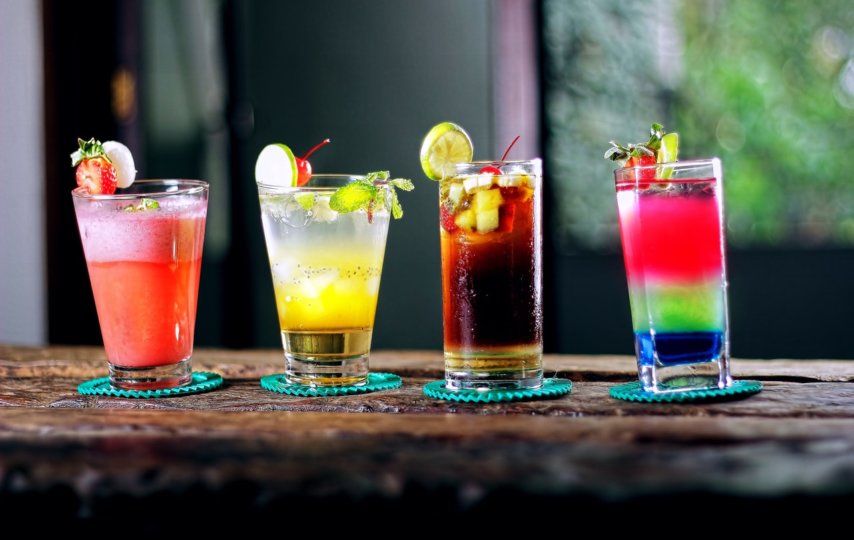For most of us, our early alcohol-drinking education involves low-priced beers, tequila, vodka, wine, and gin from 24-hour marts and supermarkets, and cheap mixed drinks. We don’t have a formal education regarding the different types of adult beverages in classy bars, what’s in them, and how to order them without embarrassing yourself.
When ordering drinks at the bar (like a true, refined lady or gentleman), here are 7 things you should know first before meeting with a bartender.
1. Neat, straight up or on the rocks?
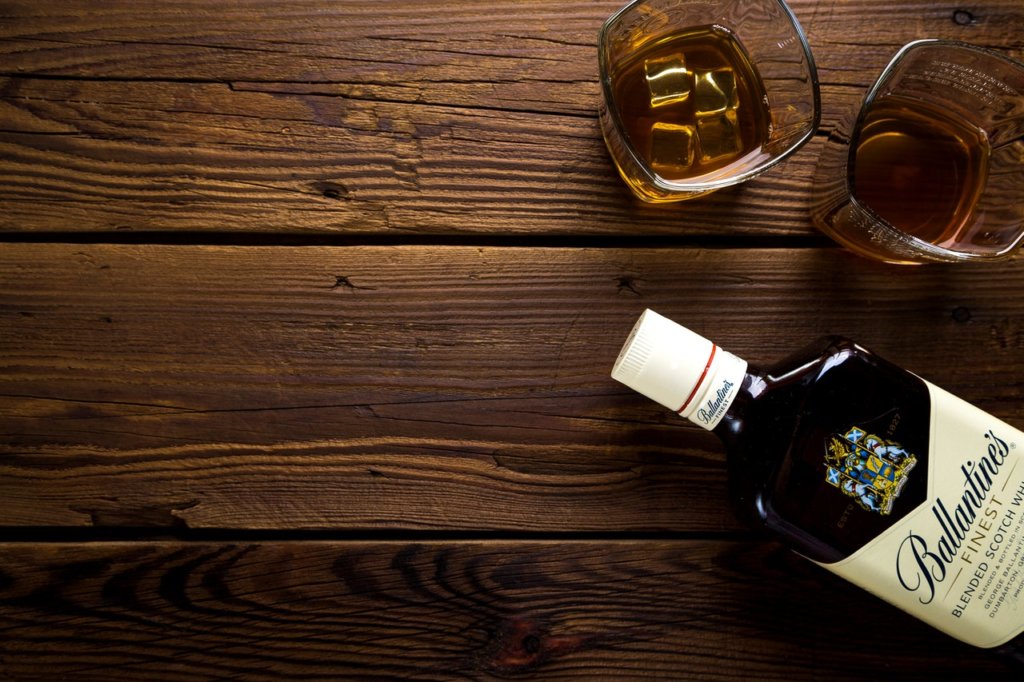
If you’re more a purist who’d prefer to enjoy your drink in it’s most naked form, you might want to know these three basic things:
- On the rocks – In the bar, “rocks” refer to ice. So a drink served “on the rocks” is simply served over ice.
- Straight up or “up” – “up” refers to a drink that is chilled with ice, either stirred or shaken, then strained into a glass without ice. These drinks are typically associated with a cocktail glass or a glass elevated by a stem.
- Neat – it is used to order a drink served at room temperature, with no ice or mixers. It’s simply, a pour of liquor straight out of the bottle.
2. Well drink or Call drink?
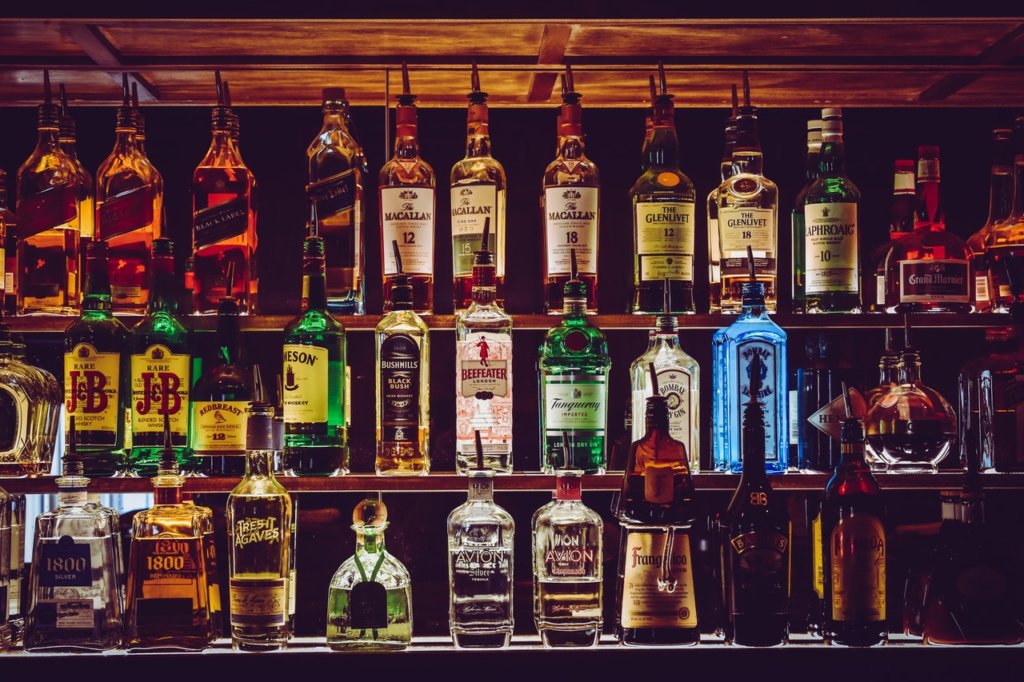
Do you care about the specific brand of your booze or you prefer having the more affordable yet reliable “house” drink?
- Well drink – A well drink is the one where neither the brand of the liquor or the brand of the mix is mentioned. The well is an area in the bar where the “house” liquors are stored.
When you order a well drink, you’re telling the bartender that you have no brand preference and you want the cheapest option.
- Call drink – If you call out a specific brand of liquor, let’s say a “Jack and Coke” rather than a “Whiskey and Coke”, you’re ordering a call drink.
Feeling fancy? Look at the top-shelf. The term “top-shelf” refers to the best brands available, which are more expensive and of superior quality.
3. Would you like a “back” with your drink?
A “back” refers to a drink that accompanies and is served in a separate glass alongside the main drink. For example, you may say “I’ll take a Manhattan with a soda back”. It’s often a refreshing non-alcoholic beverage like water or soda. It’s also common to order a beer back.
4. Shooter or cocktail?
Some patrons want their drinks strong, pure, and in the form of a shot to get that kick of alcohol quickly. Others want to take it slow and prefer full-bodied mixed drinks. Which one are you?
- Shooter – A 1-2 ounce shot of liquor meant to be consumed in one gulp
- Cocktail – an alcoholic mixed drink, which is either a mix of distilled spirits, or one or more spirits combined with ingredients like fruit juice, flavored syrup, or cream.
5. How do you like your martini?
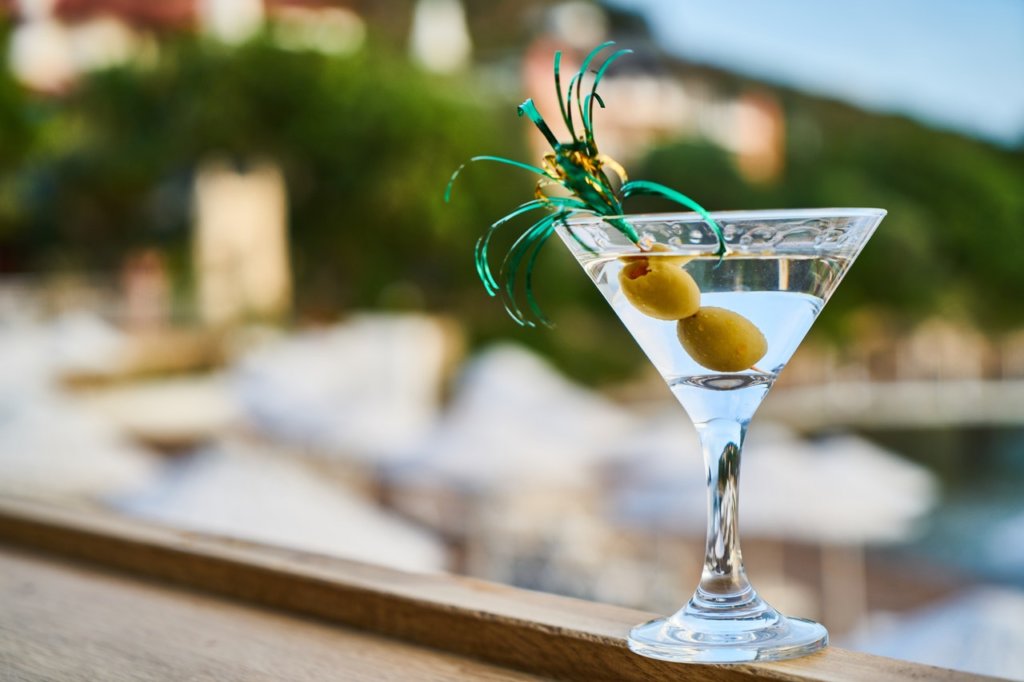
Martini is a classic cocktail made with gin and vermouth and garnished with an olive or a lemon. If you’re going to order a martini at a cocktail bar, let your bartender know how you want it.
- Gin or vodka?
- Do you want gin or vodka on your martini? Traditionally, it’s made with gin but it’s up to your preference.
- Do you want it dry or wet?
- Vermouth is a fortified wine flavored with a variety of herbs and spices. Wanting your drink “dry” simply means they’ll add less vermouth, making it less bitter. Want more vermouth? Ask for it “wet”
- Shaken or stirred?
- The bartender might ask if you want your martini shaken in a cocktail shaker or just stirred. According to experts, stirred usually results in a smoother drink.
- Dirty?
- Adding olive juice to a Martini makes it a Dirty Martini. The more the olive juice, the “dirtier” it is.
6. Liquors or Liqueurs?
- Liquors – A liquor is any alcoholic beverage that has been distilled, and comes out with high alcohol content. The six basic distilled spirits – vodka, rum, brandy, tequila, whiskey, and gin – are liquors.
- Liqueurs – These refer to sweetened distilled spirits that give drinks their signature flavors. They’re a subcategory of liquors. Liqueurs may come in flavors like sweetened fruits to snappy spices.
7. Get to Know The Six Basic Distilled Spirits
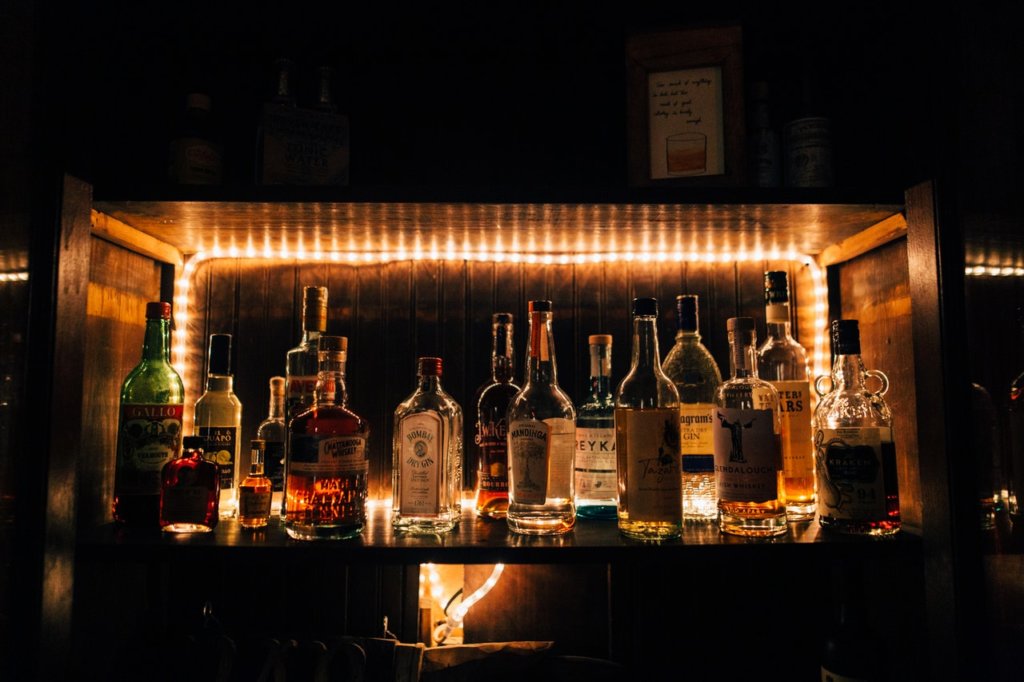
Six types of liquor are used most often in the bar. They’re often referred to as “base distilled spirits” because they form the base or foundation for a majority of cocktails and liqueurs.
- Brandy
- Distilled from: Fruits, most commonly grapes.
- Alcohol Content: 40% alcohol/volume (80 proof)
- Flavor: It has a taste of fruity burnt wine.
- Gin
- Distilled from: Neutral grains, such as barley, rye, corn, and wheat. It’s flavored with a variety of botanicals.
- Alcohol content: 40% to 47% alcohol/volume (80 to 94 proof)
- Flavor: Herbal and dry, with “piney” aroma and taste.
- Rum
- Distilled from: Sugar, either molasses or pure sugar cane.
- Alcohol content: 40% alcohol/volume (80 proof). Overproof rums can reach 75% alcohol/volume (150 proof).
- Flavor: Sweet, toasted sugar.
- Tequila
- Distilled from: Agave, a native plant from Mexico
- Alcohol content: 40% to 50% alcohol/volume (80 to 100 proof).
- Flavor: Earthy with semi-sweet and spicy tones.
- Vodka
- Distilled from: Neutral grain, like rye, corn, wheat, etc., or potato.
- Alcohol content: 40% to 50% alcohol/volume (80 to 100 proof).
- Flavor: Neutral alcohol/ethanol that’s oily.
- Whiskey
- Distilled from: malted grains, which can include a mixture of rye, corn, barley, and wheat.
- Alcohol content: 40% to 50% alcohol/volume (80 to 100 proof).
- Flavor: roasted, malted grain with oak undertones.
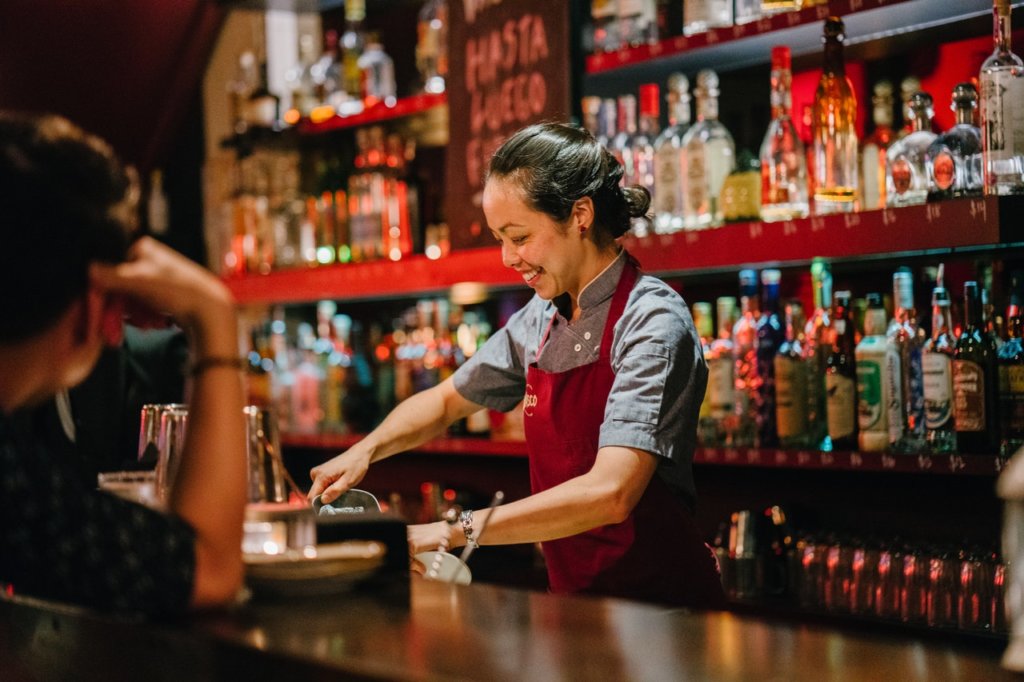
Final Words: Don’t hesitate to ask questions (but keep it smart)
Rule number one: it’s better to ask simple questions than getting the wrong (yet expensive) thing because you failed to ask. Unless the bartender is overly busy, they’ll be more than willing to share their expertise.
However, some inquiries belong straight to the “dumbest questions you shouldn’t ask a bartender” list. These include “why isn’t my glass full?”, “what’s good here?”, and “what’s the cheapest drink on the menu?”. You’re better off asking what their most popular drink is or what they’d highly recommend.
It also helps to familiarize yourself with some basic bar vocabulary.
Author Bio: Carmina Natividad is one of the creative writers for Cask Cork, an award-winning boutique cocktail bar located in Cork Ireland’s historic Victorian Quarter, which is renowned for producing the most creative and innovative drinks in Ireland. This self-proclaimed foodie enjoys discovering hidden gems and writing engaging articles about food, travel, and lifestyle.

